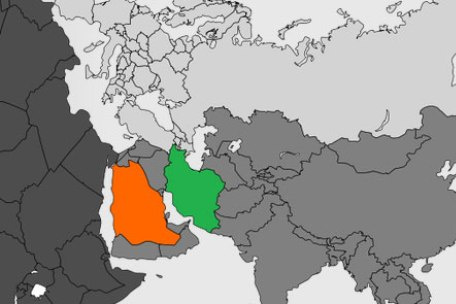Cooperation in Confrontational Relations

Relations between Iran and Saudi Arabia have always been affected by a few fundamental components that have been the reasons for confrontation. The following four major points can be discussed in this regard:
1. Ideological and cultural nature
2. Structural nature
3. Regional rivalries
4. Geopolitics in the field of oil and the Persian Gulf
Throughout history, Iran and Saudi Arabia have always advocated two types of Islam that have been in competition and confrontation with one another. Saudi Arabia has supported a traditional and Salafi interpretation of Islam, while Iran has advocated Shia Islam. This has led the two countries to have problems with each other throughout history. At the same time, this issue has at times been the source of cooperation between the two.
The other element is the question of the Persian Gulf and its geopolitical situation. Since major oil and gas reserves in the world are located there, Iran and Saudi Arabia have been influential in the Persian Gulf. The security of the region can be attained through Iran or Saudi Arabia. Iran's potentials in this area are more than those of Saudi Arabia. Iran's coastlines in the Persian Gulf are twice as long as those of the Saudis. Several islands, that are located near Iranian shores, are extremely important from the security-building point of view. These islands are so important that one can even say that the reason for heavy propaganda and discussion over the issue of Abu Musa and the Greater and Lesser Tunbs is their capacity for security-building. When Iran left the US sphere, the Americans did not base their policy of security in the Persian Gulf on Saudi Arabia. Rather, they spent tremendous resources in bringing their naval fleet to the region.
Another issue is the structural nature. Iran and Saudi Arabia’s views on security and international relations are different and contradictory from a structural aspect. Saudi Arabia has defined its security structure based on cooperation with the US, while Iran defines its security structure independently from the Americans. Saudi officials believe that the rights of the Palestinians must be observed, but they move within lines drawn by the US. On this basis, Saudi Arabia supports the Palestinian Authority and Fatah, while Iran believes that the only way to succeed in Palestine is through resistance, and supports Hamas against current US policy.
Throughout history, there has always been competition between Iran and Saudi Arabia, and the zones of their influence are determined. The first zone in their rivalry is the Persian Gulf. Regarding the security issue of the Persian Gulf, Saudi Arabia believes that Iran should not be the one to provide security in the Persian Gulf, and it does not even welcome proposals which consider regional cooperation of countries for establishment of security in the Persian Gulf.
The other competitive area that has been defined by Saudi Arabia is the Arab-Persian issue. Saudi Arabia believes that Iran should not play an influential role in Arab countries. For the Saudis, the issue of Bahrain is not just about a country whose people are in an uprising. In their opinion, the Bahraini people’s protests must never bear fruit. This is because if this does happen, the grounds will be prepared for Iran to play a significant role in this country, which will consequently have a negative effect on Saudi Arabia. The Saudis have a long-term plan for Bahrain, because they have considered this country as part of their national security zone. The causeway between Saudi Arabia and Bahrain can be defined within this zone. The unity plan for the two countries can also be discussed in this regard. Saudi Arabia believes that if something does happen in Bahrain, Iran’s influence will increase in this area.
The same thing has happened in Syria. Saudi Arabia does not seek democracy there. The Saudi issue in Syria is this zone of influence. It is for this reason that Saudi Arabia is seeking a structural change in Syria. Again, the same issue can be observed in Lebanon. The Saudis believe that if control over the Lebanese issue falls in the hands of Iran, the issue of Palestine will also be strongly influenced by the Islamic Republic. Therefore, Saudi Arabia makes efforts to prevent Iran’s influence in Syria and Lebanon.
If we want to take a quick look at relations between Iran and Saudi Arabia, we can see that the Saudis continuously supported the Iraqi regime during the Iran-Iraq war, and even funded Saddam Hussein’s aggression. Because of regional competition with Iran, Saudi Arabia wants to decrease Iran’s political and economic power. It therefore supports any plans to weaken Iran economically. This is the reason why the Saudis are concerned about relations between Iran and the US and European powers.
But the important question in this regard is whether the confrontational nature of these relations is manageable or not. It seems that this confrontation can be managed and cooperation can be created in areas with less tension. This is what we saw during the period of reconstruction and reforms, when issues that could have caused tension were well-managed. We should plan in such a way that issues which could lead to differences, such as views towards Islam, the oil issue, geopolitical concerns, and the Arab versus Persian view, turn into zones of cooperation.

